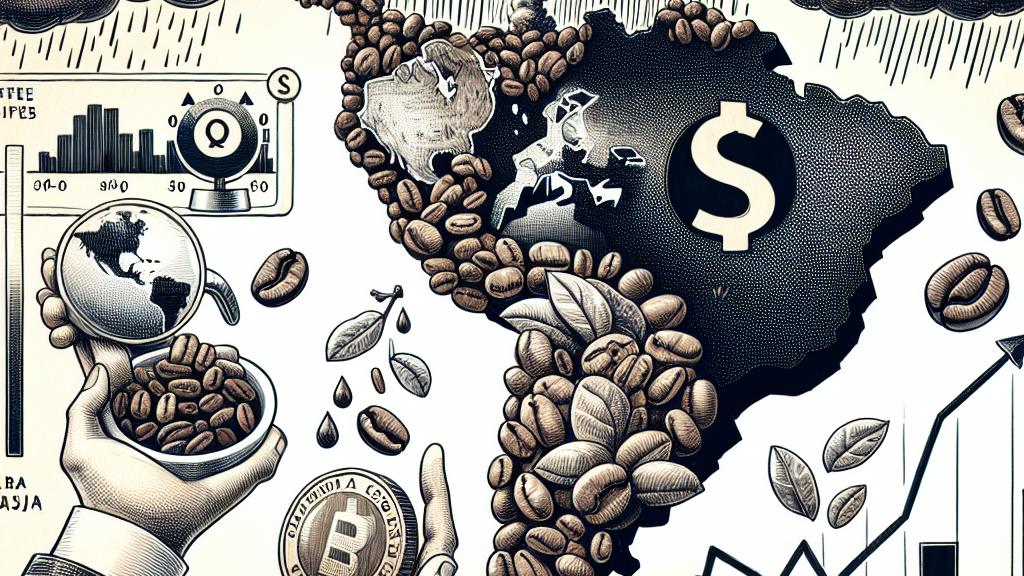Skyrocketing Arabica Coffee Prices Driven by Brazil's Crop Worries
Overview
- Arabica coffee prices soared to an astonishing 13-year high, primarily driven by alarming crop concerns in Brazil.
- The significance of weather patterns cannot be overstated, as rainfall intricately shapes the development of coffee flowers.
- Brazil's agricultural sector is also grappling with challenges in sugar production, adding layers of complexity to the market.

Current Situation of Arabica Coffee Prices
Recently, arabica coffee prices reached heights that even industry experts didn't anticipate—an impressive 13-year high, trading at $2.678 per pound as of September 2024. This remarkable leap, a 1.6% increase from previous levels, is largely rooted in growing unease about Brazil's crop output for the current season. Given that Brazil is the largest coffee producer globally, any hint of trouble sends shockwaves through the market. Traders are intently monitoring recent weather patterns; forecasts predicting insufficient rainfall have raised concerns about potential yield declines. When one considers the impact of such climatic conditions on supply and demand, it becomes clear how intricately linked weather is to coffee prices felt by consumers at the checkout counter.
Impact of Weather on Coffee Production
Weather and coffee production are interwoven in a delicate tapestry. For instance, recent rains in select Brazilian regions might herald the blooming of vital coffee flowers, which is a precursor for a robust harvest. Yet, anxiety looms as projections suggest drier spells in the coming weeks, threatening the retention of these critical blooms. Each flowering plant is more than just a botanical miracle; it represents the potential for a fruitful harvest. If even a fraction of these blooms withers away due to adverse conditions, the repercussions resonate throughout the entire supply chain—from farmers confronting lower yields to cafes experiencing a spike in prices. Ultimately, this not only impacts local economies but ripples through global coffee markets, reminding us of the pivotal role weather plays in our morning rituals.
Broader Agricultural Trends in Brazil
The challenges that Brazil faces extend beyond coffee alone— the sugar market is simultaneously feeling the heat from drought and wildfires, which have further dampened yield projections. As sugar production forecasts trend downward, the combined effects of these agricultural pressures create a complex web that influences markets far and wide. This intertwined narrative is critical: fluctuations in coffee and sugar prices illustrate how closely the agricultural sector is knit together, demonstrating how one country's weather challenges can send ripples across global food pricing systems. With rising prices for coffee and sugar alike, consumers are grappling with the consequences of Brazil's agricultural struggles—this situation starkly underscores the urgent need for sustainable farming practices. As the world focuses on Brazil's ability to overcome these intertwined agricultural hurdles, the implications for global markets and food equity become increasingly crucial.

Loading...